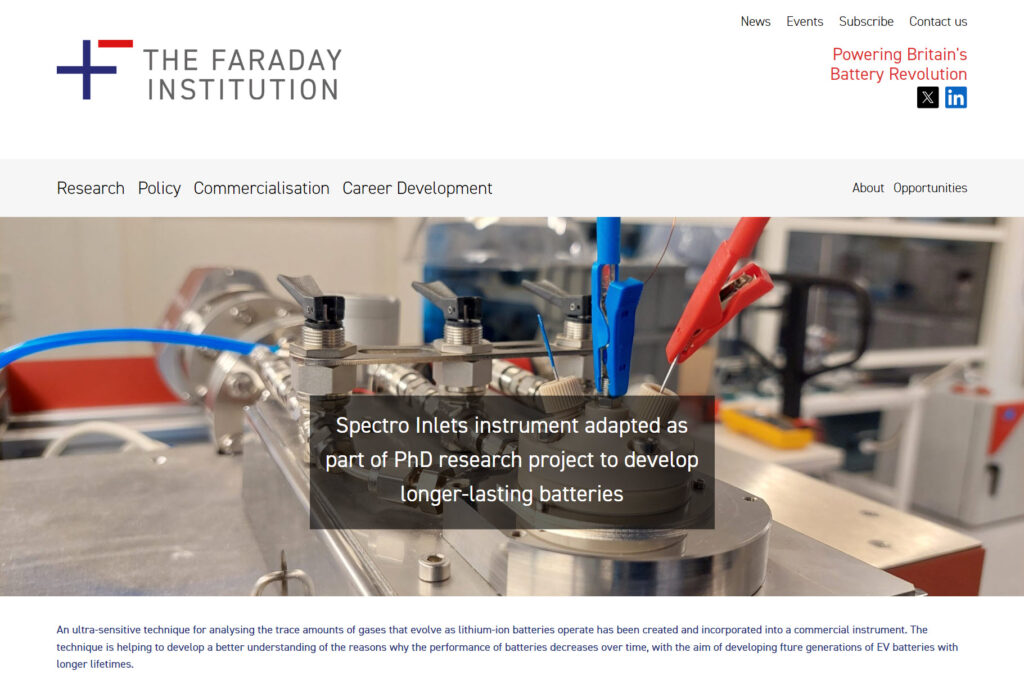A case study by the Faraday Institution has highlighted our collaborative efforts with Imperial College London, leading to an innovative adaptation of our electrochemical mass spectrometry (EC-MS) system that promises to extend the life of lithium-ion batteries.

A case study by the Faraday Institution has highlighted our collaborative efforts with Imperial College London, leading to an innovative adaptation of our electrochemical mass spectrometry (EC-MS) system that promises to extend the life of lithium-ion batteries.
See the case study here: https://www.faraday.ac.uk/success-stories/spectro-inlets/
The Journey to Innovation
Dr. Daisy Thornton, a former PhD researcher at Imperial College London, along with her supervisors Professor Ifan Stephens, Professor Mary Ryan, Dr. Ainara Aguadero, and a Spectro Inlets development engineer, embarked on a mission to understand the gas evolution in lithium-ion batteries. Their goal was to uncover the degradation mechanisms that reduce battery performance over time.
A New Cell for a New Era
The team’s research led to the creation of a new cell for the Spectro Inlets EC-MS system, designed specifically for non-aqueous electrolytes used in lithium-ion batteries. This cell, unlike others on the market, collects 100% of the analyte species, allowing for a more sensitive analysis of gas evolution mechanisms.
Precision and Sensitivity at Its Core
The newly developed cell features a microfabricated membrane that precisely controls the flow of analytes, offering a sensitivity two orders of magnitude higher to gases such as oxygen or hydrogen. This precision is crucial for determining accurate rates of specific degradation mechanisms, which can better predict the useful remaining life of batteries.
Collaboration Leads to Commercial Success
The joint effort between Spectro Inlets and Imperial College London has not only advanced scientific understanding but also led to commercial success. The adapted cell has been sold in European and US markets, with companies like Johnson Matthey already using it for broader applications.
Expanding Horizons
While initially designed for coin cells, plans are underway to develop sample holders for pouch cells and solid-state batteries. The EC-MS system’s versatility has also shown promise for analyzing non-aqueous battery technologies and wider electrochemical applications.
A Vision for Sustainability
As we look to the future, Spectro Inlets remains committed to driving innovation in battery research and development. Our collaboration with the scientific community continues to pave the way for more sustainable and efficient energy storage solutions.
